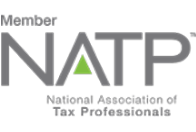The Inflation Reduction Act (IRA), which was signed into law last August 2022, commits to bring more to the table than just reducing the looming effects of soaring inflation. One of its goals is to fight climate change by mitigating pollution through the promotion of a clean energy economy. The law has several provisions and investments that will save consumers monies on energy bills and accelerate the deployment of a clean energy economy. Most notable amongst its provisions is Section 30C or the Alternative Fuel Vehicle Refueling Property, which is the extension of the Electric Vehicle Charger Tax Credit (which recently expired last December 31, 2022) for another ten years until December 31, 2032.
What is EV Charger Tax Credit?
The Electric Vehicle (EV) Charger Tax Credit is a federal tax credit granted to consumers and businesses for installing EV charging stations. This is to promote and advance the shift to clean energy technology across the country, more specifically in the electric vehicle expansion.
For EV chargers placed in service before 2023, tax credit of up to 30% of the purchase price and any installation cost of the EV Charger, with a maximum limit of $1,000 for residential installations and $30,000 for commercial installations per charger, can be claimed.
With the IRA, EV chargers placed in service after 2022 get the same 30% tax credit limit except for chargers that are set up for commercial use which get a higher maximum limit of $100,000 per charger.
The IRA also extends the application of the EV tax credit to other kinds of charging equipment. Starting 2023, the tax credit will also apply to bidirectional charging equipment. Bidirectional charging, or Vehicle-to-Direct Grid, allows the battery of your electric car to provide power to the grid or your home in case of power outage. This type of charger may be more costly than one-way chargers since they are comparatively new in the market.
Additionally, the new tax credit also covers charging equipment for 2-wheel and 3-wheel electric vehicles.
Eligibility Requirements
To qualify for the tax credit, you must be the original owner of the charging equipment installed in the United States and it must be placed in service during the tax year. If the charger is for personal use, it should be installed in your principal home or residence.
For EV chargers placed in service after 2022, they must be located in an eligible census tract. These tracts are US designated areas in which low-income communities, described in 45D(e), are identified as requiring economic development and assistance. Also, those located in non-urban areas (tracts designated by the Secretary of Commerce) will also qualify for this tax credit.
How to Claim Tax Credit?
To claim the EV tax credit, the taxpayer must file the IRS Form 8911 (Alternative Fuel Vehicle Refueling Property Credit) when filing for the federal income tax return. Since this is a tax credit, it can only be applied as a deduction to an outstanding federal tax liability.
It is essential to keep the receipts showing the purchase price and any installation cost of the EV charger.
State Tax Incentives on Electric Vehicle Charger
There are several states and metro areas that offer tax incentives for installing EV charging station in your home. This can further increase your tax savings since you can avail of the EV charger tax credit along with the state incentives. Note that the rules vary per state and therefore it is important to check with your local government to find out any available programs and how it works.
The Electric Vehicle Tax Credit aims to encourage more people to switch to electric vehicles by reducing its operating cost. It is a federal tax credit and it’s best to consult a tax professional to check your eligibility and how to claim this credit on your tax return.
You may want to consult and work with 1099 Accountant – We offer online bookkeeping, online advisory services and online tax and accounting services. We offer reasonable rates. We only work with independent contractors, freelancers, and one-person business. We work with locum tenens from California to New York City and everywhere in between. Yes, even Hawaii!
Contact us toll-free (855)529-1099 or make an appointment for a free consultation. https://1099accountant.com/contact/











